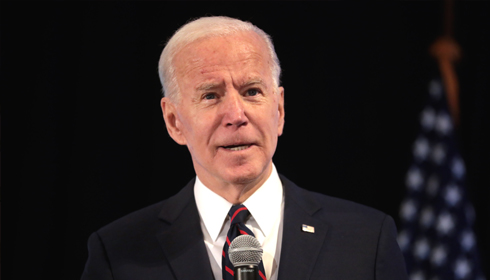
Biden Signs New Law that Mandates CPR Training, AEDs, and Emergency Response Plans in Schools Nationwide
Signing the bipartisan Cardiomyopathy Health Education, Awareness, Research, and Training in Schools (HEARTS) Act into law, President Joe Biden marks a turning point in national efforts to raise cardiac emergency readiness in educational settings. Passed the House unanimously in September and the Senate earlier this month, this innovative law seeks to improve cardiac safety protocols in educational institutions, therefore perhaps saving many lives.
Comprising CPR training, automated external defibrillators (AEDs), and cardiac emergency response plans, the HEARTS Act offers thorough policies to equip institutions with lifesaving instruments. The American Heart Association (AHA) claims that these tools are absolutely vital since they more than double the cardiac arrest survival rates.
"The bipartisan HEARTS Act is a monumental step forward in saving lives from cardiac arrest on school grounds and athletic facilities across the country," said AHA CEO Nancy Brown. Critical resources will be available to students, faculty, and guests that can make the difference between life and death during a cardiac emergency if schools all around are armed with cardiac emergency response plans, CPR training, and AEDs.
Also appreciative of the law was Buffalo Bills safety and heart arrest survivor Damar Hamlin. "Every year, in our nation, 23,000 children go into cardiac arrest; I think each one of them deserves the same access to life-saving treatment that I did. From ball fields to classrooms, Hamlin said, this measure will help to safeguard children.
Introduced in March 2023 under backing from the AHA, Hamlin, and the Smart Heart Sports Coalition of the National Football League, the HEARTS Act expands on the Access to AEDs Act. The HEARTS Act supports coalition efforts to equip schools for cardiac emergencies by creating a federal grant program; the group has led state-level projects to ready these facilities. Funding AED purchases, CPR instruction, and school-wide cardiac emergency response plan preparation will come from this initiative.
Only forty percent of those going into cardiac arrest now get care right now before emergency responders show up. Still, bystander action will help to greatly raise survival rates. Schools with AEDs have showed a seven-fold increase in survival rates for students going into cardiac arrest as compared to schools devoid of them.
The legislation emphasises also the need of community advocacy. The HEARTS Act gained bipartisan support mostly through grassroots movements and survivor testimonies. Print, internet, and social media campaigns were part of advocacy to elevate the voices of families impacted by heart disease as well as cardiac arrest survivors.
Brown honoured Congress's bill champions: Majority Leader Chuck Schumer, Sens. Cory Booker and Susan Collins, Rep. Frank Pallone, Sheila Cherfilus-McCormick, Bill Posey, and others. She said, "Every second counts when someone experiences cardiac arrest; now, schools will have the tools required to save lives."
Looking ahead, the AHA intends to work with Congress and state legislatures to guarantee complete funding and efficient implementation of the HEARTS Act. "Securing funding for these policies will protect more lives and create safer environments for students, staff, and school visitors across the country," Brown stressed the continuous dedication to improving cardiac safety policies in schools.